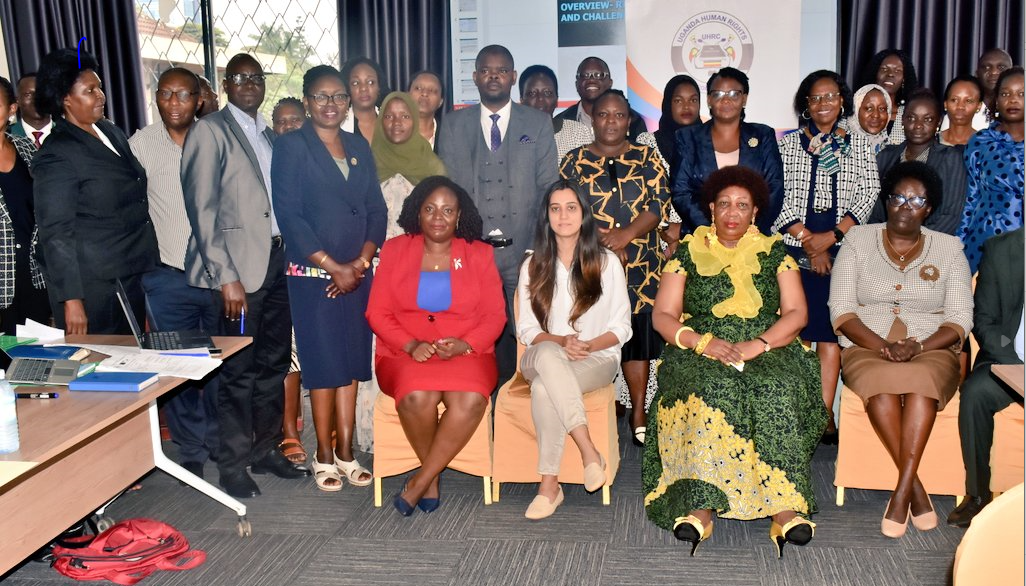
The Uganda Human Rights Commission (UHRC) with support from GIZ – Better Management of Migration (BMM) – Uganda has trained its staff in issues regarding migration.
The four-day training dubbed Migration and Human Rights, involved training of Directors, Managers, Regional Human Rights Officers, Human Rights Officers – Investigation (HRO/I), Human Rights Officers – Education (HRO/E), Human Rights Officers – Legal (HRO/L) and Human Rights Officers – Monitoring and Inspection (HRO/M&I), at Fairway Hotel in Kampala last week.
While officially opening this training yesterday (Aug 26), the Chairperson Hon. Mariam Wangadya reminded members of staff of the causes of migration and the susceptibility of migrants to human rights violation.
“Ladies and gentlemen, whereas migration is not a new phenomenon in the country, the volume of movement of persons has grown over the years and with this, increasing tensions and dynamics. Even though migrants are not inherently considered vulnerable, they are often susceptible to human rights violations. Migrants in an irregular situation tend to be disproportionately vulnerable to discrimination, exploitation and marginalization, often living and working in the shadows, afraid to complain, and denied their human rights and fundamental freedoms,” the Chairperson noted.
She also reminded the gathering about the Constitutional provisions that guard against any form of discrimination among all people and the role of the UHRC as a National Human Rights Institution (NHRI) in the migration processes.
“We must remember that every migrant is a human being with deserving inherent rights that must be upheld, regardless of their circumstances. In order to effectively address rights of Migrants, it is important to strengthen our monitoring and oversight work. It is our duty as NHRIs to address the challenges and opportunities presented by migration. Our commitment to human rights obliges us to ensure that the principles of human rights are extended to every migrant, regardless of nationality, race, gender, or legal status,” Hon. Wangadya said.
“Our collective efforts can make a significant difference in shaping policies, raising awareness, and creating an environment where the rights of migrants are respected.”
The Secretary to the Commission Ms. Margaret Ejang Lucy noted that the Commission has already identified challenges facing better migration and has made recommendations. “As a commission we have come across those challenges recorded on both electronic and print media. Other challenges were actually identified by the commission in the process of monitoring the human rights and awareness creation in the country,” she said.
The training was conducted in a phased manner for purposes of having customized content that suites the varied audience. The first training was for trainers (Training of Trainer/ToT) and this involved UHRC directors, Managers and Heads of Regional offices (RHRO) and senior human rights officers was conducted on Monday and Tuesday. The second category was for HRO/E, HRO/L and HRO/I and other selected HROs most of whom are involved directly in receiving or monitoring issues surrounding migration. This was conducted on Wednesday and Thursday.
The facilitators included several consultants and the UHRC Director for Monitoring and Inspection Ms. Ruth Ssekindi. The topics discussed included; An overview of Migration and Human Rights where the meaning of migration, reasons for, Forms, Types and Trends of Migration in Uganda as well as categories of Migrants were defined and examples given. The other topics included, the legal framework surrounding migration, Rights and Duties of migrants, meaning of Trafficking in persons (TIP), the difference between TIP and smuggling of migrants, causes of TIP, role of UHRC and other responsible government institutions in combatting trafficking in person, among others.
